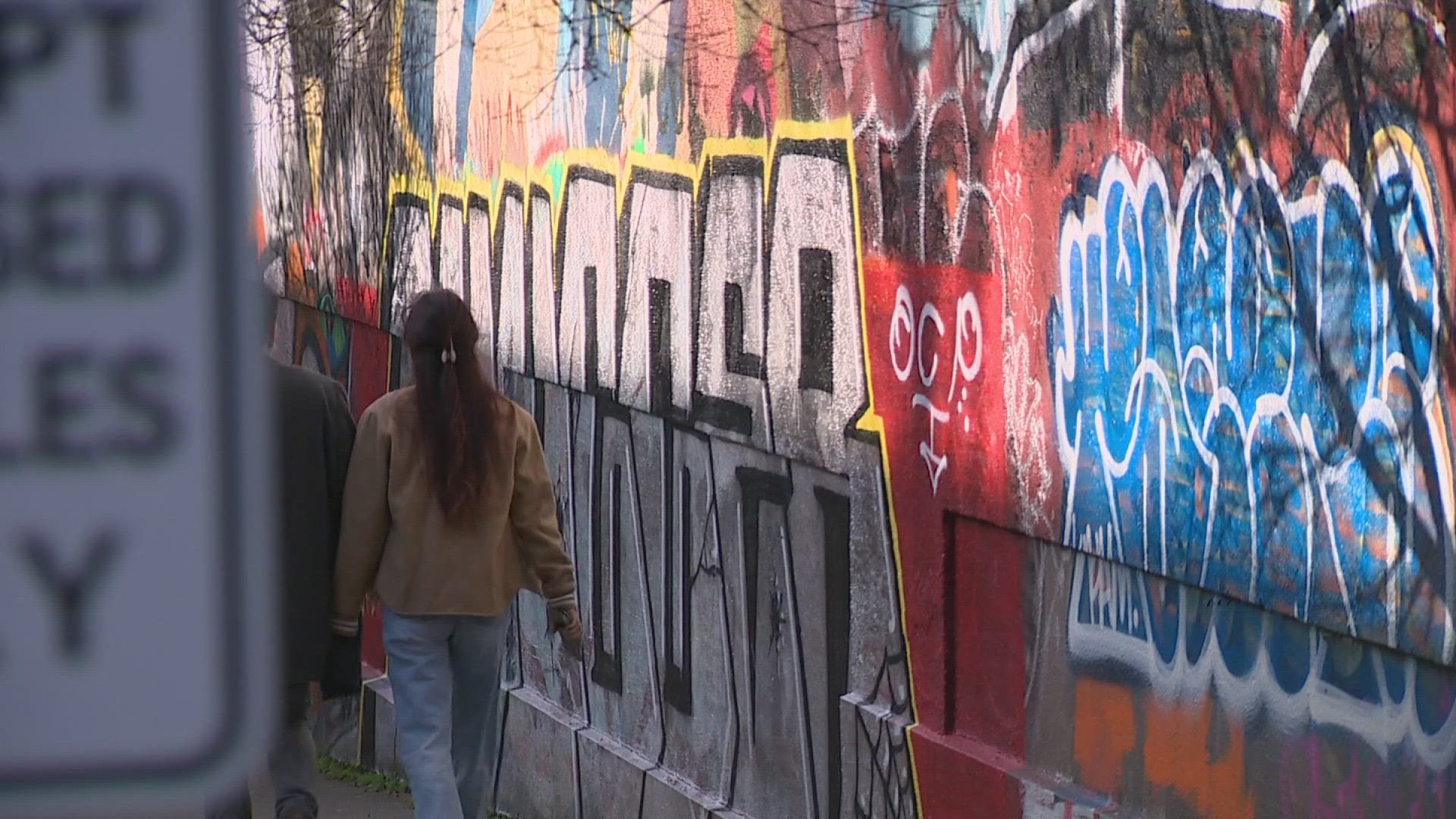SEATTLE — Seattle police are once again allowed to make graffiti-related arrests.
This comes after the Ninth Circuit Court reversed a lower court ruling from last summer that banned officers from making arrests for graffiti.
"We are seeing more graffiti than ever in Seattle, and I think we need to take the bull by the horns and get after it," said Don Blakeney, the Executive Director of U District Partnership which focuses on serving the neighborhood.
Blakeney said he wants the city to get after a problem, that's impacting businesses.
"When you see that graffiti, it's kind of a letdown because you know a small business is trying really hard to do what they can to succeed,” Blakeney said.
Blakeney said in any given month, his crews clean up around 1,600 graffiti tags in the U District alone.
"I work with a lot of small businesses (and) they consistently get hit with graffiti tags and it's a huge cost to them,” Blakeney said. “It can cost a small business thousands of dollars, some people who vandalize use acid and it can destroy a whole plate glass window. That can cost $5,000."
He believes the problem has grown since this past summer's ruling that halted officers from enforcing graffiti-related crimes. It stems from a lawsuit filed against the city, where four protestors argued their First Amendment rights were violated when they were arrested in 2021 for writing chalk messages outside a police station.
However, Seattle City Attorney Ann Davison announced on Friday that the U.S. Court of Appeals for the Ninth Circuit reversed that lower court ruling.
In a statement, Davison said in part, "the people of Seattle won an important victory today when the Ninth Circuit upheld our city’s right to enforce our laws against graffiti property destruction. Graffiti is a massive problem for our city, costing taxpayers, businesses, and residents millions of dollars while creating widespread visual blight. We must have as many tools as possible to protect neighbors and residents impacted by graffiti."
"It's a huge impact no matter if it's public property or private property,” Blakeney said. “So we appreciate that the city is taking a focus on it."
KING 5 did speak with a handful of people off camera who told KING 5 crews they were against this reversed ruling. Some argue graffiti is art and should not be considered a crime. While others added the city should focus on addressing other issues like drugs and homelessness.

